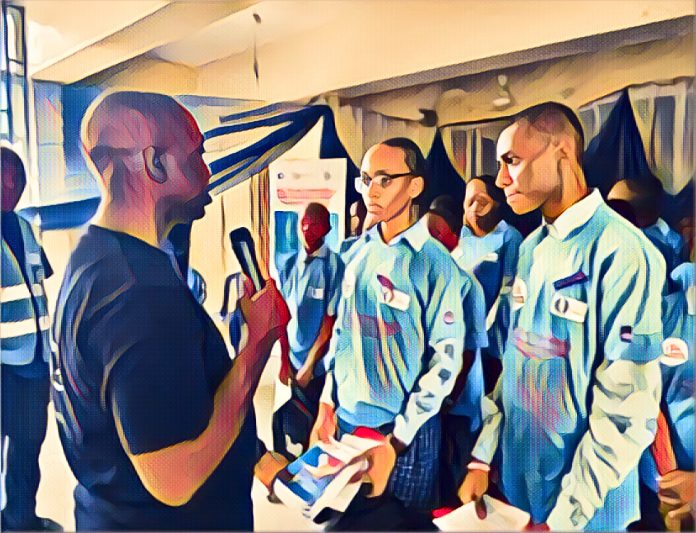Key Points
-
Edo students fight human trafficking through school clubs.
-
Education and peer awareness are central to the strategy.
-
Stakeholders hope to replicate the model nationwide.
In a bold move to confront one of Nigeria’s most persistent human rights issues, students across 50 secondary schools in Edo State have formed Anti-Human Trafficking and Violence Against Persons (A.TIPVAP) Vanguard Clubs.
The initiative is part of the School Anti-Trafficking Education and Advocacy Project (STEAP), a collaboration between the National Agency for the Prohibition of Trafficking in Persons (NAPTIP) and the International Centre for Migration Policy Development (ICMPD), with support from the Kingdom of the Netherlands.
At the club inauguration events, students, teachers, government officials, and civil society groups came together to raise awareness about trafficking.
NAPTIP’s Zonal Commander in Benin, Sam Offiah, spoke candidly to students, warning them against deceptive offers of foreign jobs, which often result in forced labor, sexual exploitation, or organ trafficking.
“Anyone who promises you a better life abroad without involving your parents is a trafficker,” Offiah warned. “Human trafficking dehumanizes and destroys futures.”
Offiah emphasized that the students’ role is critical. “You are meant to learn and build a future, not become victims,” he said.
Building awareness through education and peer support
The vanguard clubs aim to build student awareness and resilience through peer-to-peer education and community outreach.
Students are trained to identify trafficking tactics, spread awareness, and report suspicious activity.
Elvis Ederibhalo, project officer of STEAP in Edo, explained the initiative’s core goal: “Education is our strongest weapon. These clubs are not just symbolic—they are a movement.”
A recent ICMPD survey found that 75 percent of rescued victims of human trafficking in Nigeria were school-age children.
This underscores the urgent need to reach students early with targeted, informed advocacy.
Representatives from the Edo State Ministry of Education, including desk officer Mercy Imasuen-Isibor, lauded the initiative. “With these clubs, we now have student ambassadors. This campaign is timely and vital,” she said.
The ministry plans to integrate the program into the school curriculum and expand the model statewide.
A model for fighting trafficking in Nigeria’s heartland
Members of the Edo State House of Assembly expressed support for the initiative, emphasizing that human trafficking is not limited to cross-border exploitation.
“It happens within our streets, when children are forced into street hawking or housework,” said Benedict Omordon, aide to the Speaker.
Principals from schools such as Oba Ewuare Grammar School and Oredo Girls Secondary School pledged their support.
“This initiative is historic,” said Principal Victor Orumwense. “It empowers our youth to become advocates for justice.”
Student leaders also shared passionate appeals with their peers. “We know life is hard, but trafficking kills dreams,” said Excellence Osamuyimen, president of the Oredo Girls Vanguard Club. “We must finish school and fight for others.”
The initiative has planted the seed of resistance in 50 schools. With continued support from NAPTIP, ICMPD, and global partners, Edo could become a model in the nationwide fight against human trafficking.



